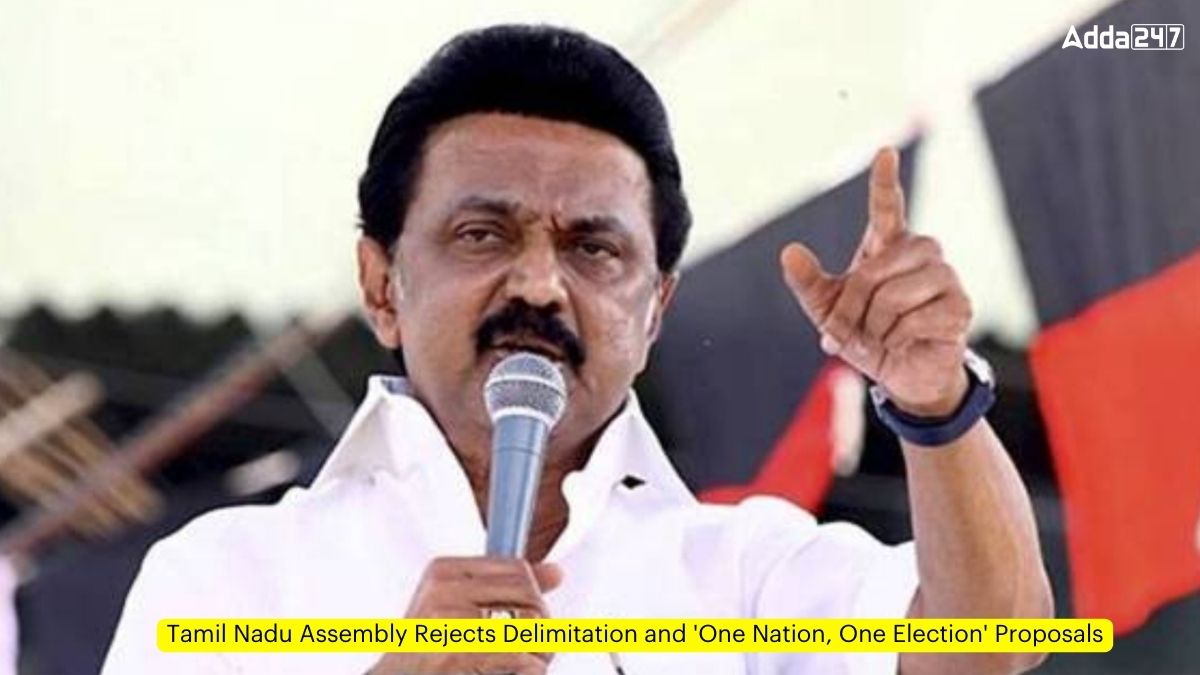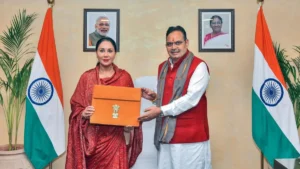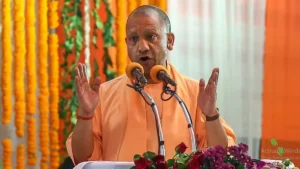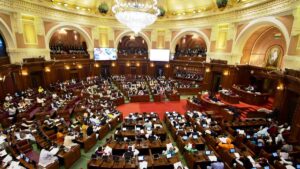The Tamil Nadu Assembly made a significant political statement by unanimously adopting two resolutions that challenge the Union government’s proposals on ‘One Nation, One Election’ and the post-2026 delimitation process. This move underscores the state’s firm stance on maintaining its democratic principles and the autonomy of its electoral processes.
The Resolutions Explained
Against ‘One Nation, One Election’
The first resolution openly criticizes the concept of ‘One Nation, One Election,’ arguing that it undermines the essence of federalism and democratic decentralization. The resolution posits that the diversity and complexity of India demand a more nuanced approach to elections, where state and local issues can be addressed independently of national electoral cycles.
Questioning Delimitation Plans
The second resolution expresses apprehensions about the proposed delimitation process, suggesting it could unfairly penalize states like Tamil Nadu, which have made significant strides in socio-economic development. Chief Minister M.K. Stalin articulated concerns that delimitation based on population growth could diminish Tamil Nadu’s representation in Parliament, impacting the state’s influence and its ability to advocate for its interests.
Chief Minister’s Strong Words
M.K. Stalin did not mince words when discussing these issues on the Assembly floor. He labeled the ‘One Nation, One Election’ policy as “dangerous” and “autocratic,” and critiqued the proposed delimitation as a threat to the democratic rights and representation of Tamil Nadu and other southern states. Stalin emphasized that both proposals could have far-reaching negative consequences for the state’s autonomy and its citizens’ welfare.
The Broader Implications
Delimitation Concerns
Delimitation, as highlighted by Stalin, poses a particular threat to the representation of Tamil Nadu in the context of its population growth relative to other states. The fear is that a recalibration of parliamentary seats based on updated population figures could lead to a reduction in the state’s seats, thereby weakening its political leverage and voice at the national level.
Political Unity
The resolutions saw support across the political spectrum in Tamil Nadu, with parties including the AIADMK, Congress, and others backing the state’s position. This unity reflects a shared concern over policies perceived as undermining state rights and the federal structure of India.
The BJP’s Response
BJP MLA Vanathi Srinivasan acknowledged the concerns raised but urged patience, noting that the Central government has formed a committee to review various perspectives on ‘One Nation, One Election.’ She advocated for a measured response, suggesting that fears might be premature.
Important takeaways for all competitive exams:
- Tamil Nadu Capital: Chennai;
- Tamil Nadu Governor: R. N. Ravi;
- Tamil Nadu Chief minister: M. K. Stalin;
- Tamil Nadu Flower: Gloriosa Lily;
- Tamil Nadu Formation: 1 November 1956;
- Tamil Nadu High Court: Madras High Court.




 Rajasthan Budget 2026–27 Presented with ...
Rajasthan Budget 2026–27 Presented with ...
 Uttar Pradesh Tables First-Ever Economic...
Uttar Pradesh Tables First-Ever Economic...
 Uttar Pradesh Presents ₹9.13 Trillion Bu...
Uttar Pradesh Presents ₹9.13 Trillion Bu...








